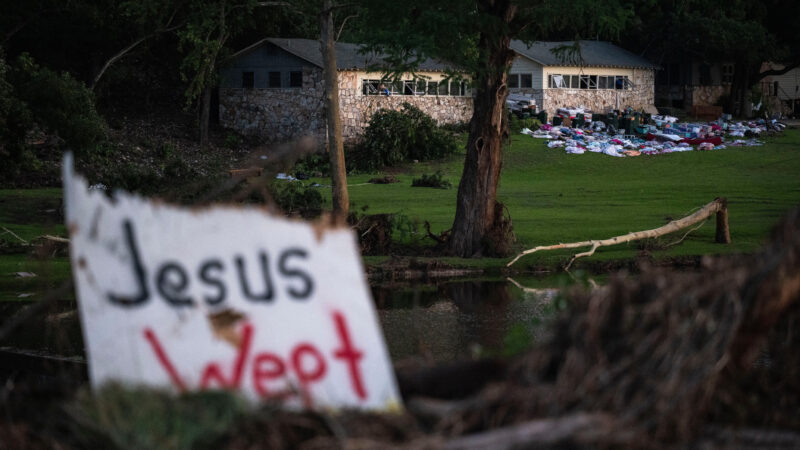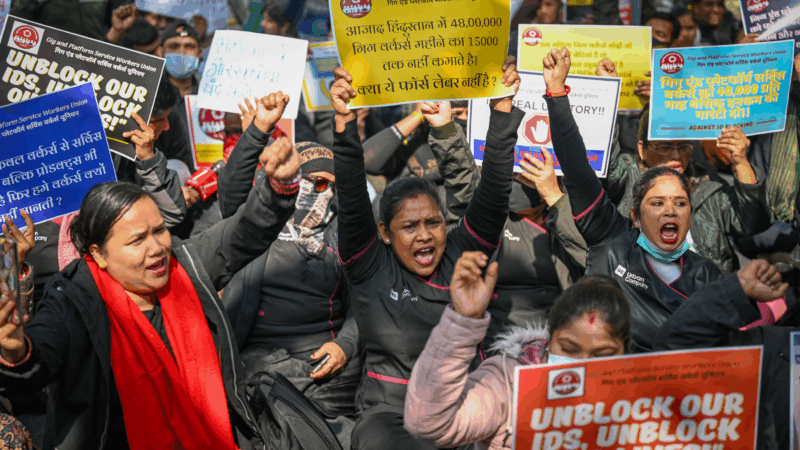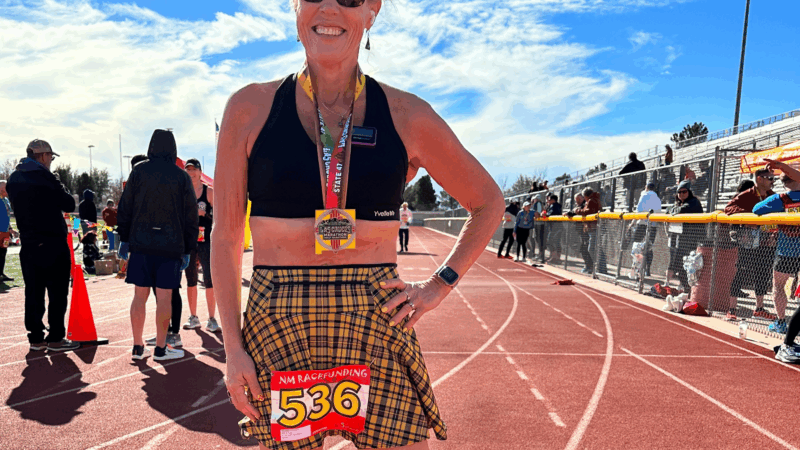New Lead Laws Affect 2nd Hand Clothing Stores
Warning: This story takes more turns than a game of Twister. When Congress passed the law, which caps lead levels and other potentially dangerous substances, it said manufacturers must certify their products are safe. And not just toys, but clothes, books, blankets, you name it. That sent manufacturers, retailers, public libraries, even Ebay sellers scrambling because they’re liable if they sell tainted products. To ease concerns, the agency that will enforce the law said some products might be exempt. Or maybe not. All this confuses consumer Kathleen Lawrence.
Lawrence sits on the floor of her Birmingham-area home playing dolls with her daughters. The doll’s dress is secondhand, like most of the girls’ clothes.
“I would rather spend my money on other things: a vacation. It’s just, they don’t wear them that long. And I like them to look nice and I can’t afford the name brands.”
Lawrence worries the new law will make it harder to find good used clothes. And she’s not alone. Across the country thousands of resale shop owners say the law will hurt their cash-strapped customers and possibly put them out of business.
“Do we need to close our doors? Are we not going to be able to take clothes in?”
Karol Leggett of Kidz Closet Consignment in Vestavia Hills just doesn’t know. So she’s making changes.
She pulls out a blue shirt with glittering, silver rhinestones. Faced with the possibility of a $100,000 fine, Leggett will no longer accept anything that might contain lead.
“We have been getting thousands of contacts at the agency through emails, through phone calls, through visits of people pleading with us.”
“Our hands are tied very tightly and even if we could wiggle our fingers we can’t make the magic happen here in the timeframe that has been set up by the legislation.”
Last week, the Commission created a little wiggle room and issued a one year stay on testing and enforcement requirements. But the reprieve doesn’t exempt stores. Garment industry consultant Kathleen Fasanella says starting Tuesday it’s illegal to sell untested items.
“Basically, all of these products, millions and millions of dollars in products are just going to have to be destroyed. And that will bury any company.”
In a survey of children’s product manufacturers, 70% said the law would put them out of business.
Back on her living room floor, Kathleen Lawrence is banking on entrepreneurial spirit.
“Surely somebody’s going to start a little business of their own – a clothes swap. People find ways to meet their needs. We’ll go on the black market for our kids clothes.”
It might not come to that. This week, South Carolina Republican Senator Jim DeMint introduced legislation to exempt thrift stores, yard sales and consignment shops. If passed, stores wouldn’t have to throw out millions of dollars of their existing product.
Hear from one children’s advocacy group which supports the legislation.
Camp Mystic parents from Alabama seek stronger camp regulations
Sarah Marsh of Birmingham, Ala. was one of 27 Camp Mystic campers and counselors swept to their deaths when floodwaters engulfed cabins at the Texas camp on July 4, 2025. Sarah’s parents are urging lawmakers in Alabama and elsewhere to tighten regulations.
Court rebuffs plea from domestic workers for better pay and respect
They're often paid low wages and lack job protections. A petition to the country's supreme court to support their demands did not see success — and they are protesting.
Spy agency says Kim Jong Un’s daughter is close to be North Korea’s future leader
Seoul's assessment comes as North Korea is preparing to hold its biggest political conference later this month, where Kim is expected to outline his major policy goals for the next five years.
Using GLP-1s to maintain a normal weight? There are benefits and risks
Drugs like Zepbound and Wegovy are intended for people who are overweight. Some patients are using them after bariatric surgery to keep pounds from creeping back. Others may just want to lose a few pounds.
Jordan Stolz opens his bid for 4 golds by winning the 1,000 meters in speedskating
Stolz received his gold for winning the men's 1,000 meters at the Milan Cortina Games in an Olympic-record time thanks to a blistering closing stretch. Now Stolz will hope to add to his collection of trophies.
How the FBI might have gotten inaccessible camera footage from Nancy Guthrie’s house
Last week, law enforcement said video footage from Nancy Guthrie's doorbell camera was overwritten. But the FBI has since released footage as Guthrie still has not been found.







